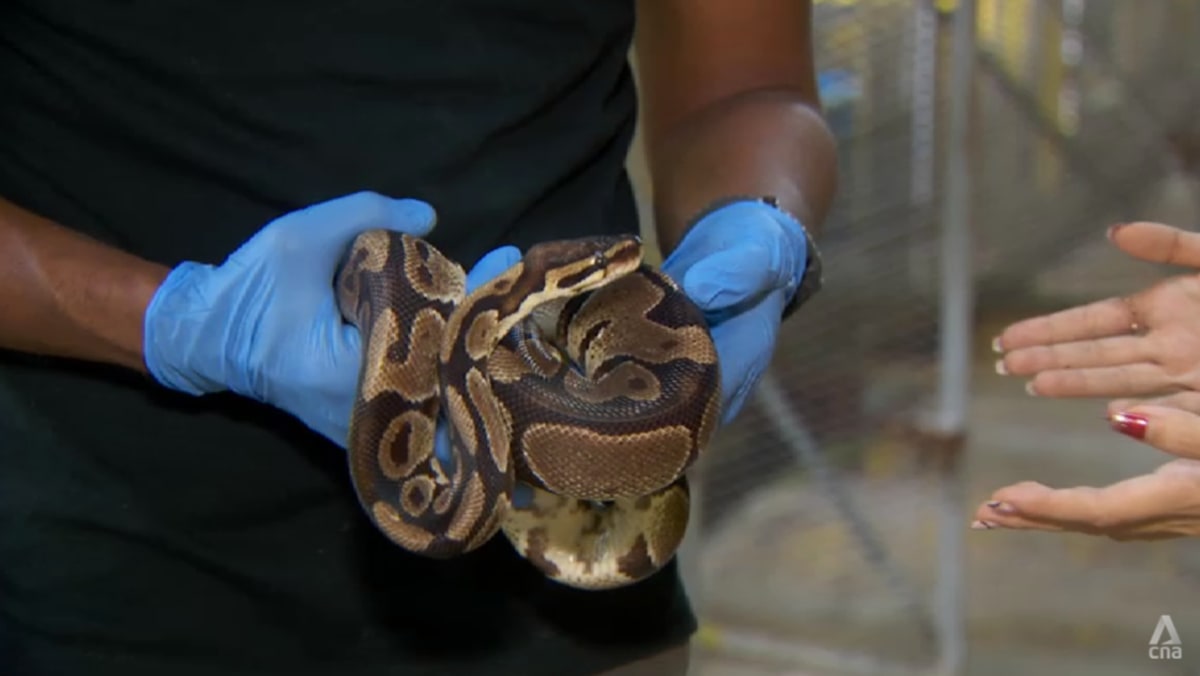YEAR OF THE SNAKE
In Chinese culture, the snake is an auspicious animal that represents prosperity and brings good luck.
This could lead some to aspire to acquire one despite it being illegal — snakes are not allowed as pets in Singapore.
In 2013, the last Year of the Snake on the Chinese zodiac, ACRES saw a spike in cases of people abandoning or surrendering exotic snakes.
One such reptile that the organisation still takes care of to this day is Leva, a female ball python that was found in the lost-and-found section of a taxi company that year.
The ball python is one of the most commonly traded illegal snake species in Singapore, the animal protection charity said.
Leva has been under ACRES’ care for 12 years but the species, native to West and Central Africa, can live up to 30 years.
The non-profit said its facility is near maximum capacity and takes in exotic animals only on a case-by-case basis.
The organisation is currently housing more than 120 animals in quarantine and hopes to repatriate them where possible.
CRUELTY TO ANIMALS
Wildlife experts warned that purchasing and owning illegal wildlife not only breaks the law but also inflicts abuse on the animals.
“When wild animals are smuggled, they are usually smuggled in large numbers. They go through a lot of pain and suffering,” said one of ACRES’ CEOs Kalaivanan Balakrishnan.
“The entire smuggling process is unethical. Sometimes it’s linked to other vices. So, when you buy illegal wildlife, you could actually be supporting other illegal activities as well.”
The Herpetological Society of Singapore (HSS) said many reptiles and amphibians suffer from heat stress or even perish when smuggled in higher temperatures such as in a vehicle under the hot sun. This is because they are cold-blooded and are unable to regulate their body temperature.
There is also a lack of vet infrastructure in Singapore to care for them.
Those that escape, or are abandoned in the wild after their owners get tired of them, are rarely safe from harm.
HSS, which advocates for the conservation of reptiles and amphibians, has seen many turn up as roadkill in its database.
“A lot of these animals do not die a painless death. The worst-case scenario is that they have a breeding population and they start impacting our local wildlife,” said Law Ing Sind, co-founder of the society.













